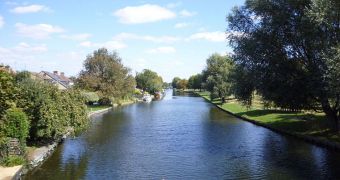According to investigators at the University of Leeds, in the United Kingdom, severe droughts can significantly impair river ecosystems and food webs. The effect is especially severe in freshwater rivers, the team says.
The research was conducted using a number of artificial streams the team had access to. Periodically, the scientists would reduce the volume of the water flowing through these streams, in order to simulate the effects of drought.
Experts paid close attention to both animal and plant species, so that they could then assess the health of the food webs that naturally develop between the two. This was the longest-running drought experiment ever conducted in freshwater ecosystems.
Details of the new study appear in the September 10 issue of the top scientific journal Nature Climate Change. Experts from Queen Mary University of London, the Center for Ecology and Hydrology, and the University of Birmingham were also a part of the study.
“These findings demonstrate that the future intensifications of drought, similar to those seen in the UK earlier this year and ongoing in the central and Midwest states of America, can be expected to have major effects on both biodiversity and ecosystem processes in streams and rivers,” Dr. Lee Brown says.
He holds an appointment with the University of Leeds School of Geography, and was also a member of the team behind the study.
“We found that drought changed the make-up of the invertebrate life in the stream community and reduced its diversity by around 25 percent,” adds University of Birmingham School of Geography, Earth and Environmental Sciences professor and lead study author, Dr. Mark Ledger.
Large predatory invertebrates and insects such as mayflies were severely affected by the lack of water, the team explains. Various animals and plants that could not move to deeper waters were also hit.
“Our study demonstrates that the loss of invertebrates limits the flow of food energy through the food chain, with potentially profound consequences for the health of river ecosystems,” Ledger explains.
“We discovered that, in particular, drought had negative effects on large bodied invertebrates, an important food source for fish, which has significant implications for fisheries,” he concludes.

 14 DAY TRIAL //
14 DAY TRIAL //